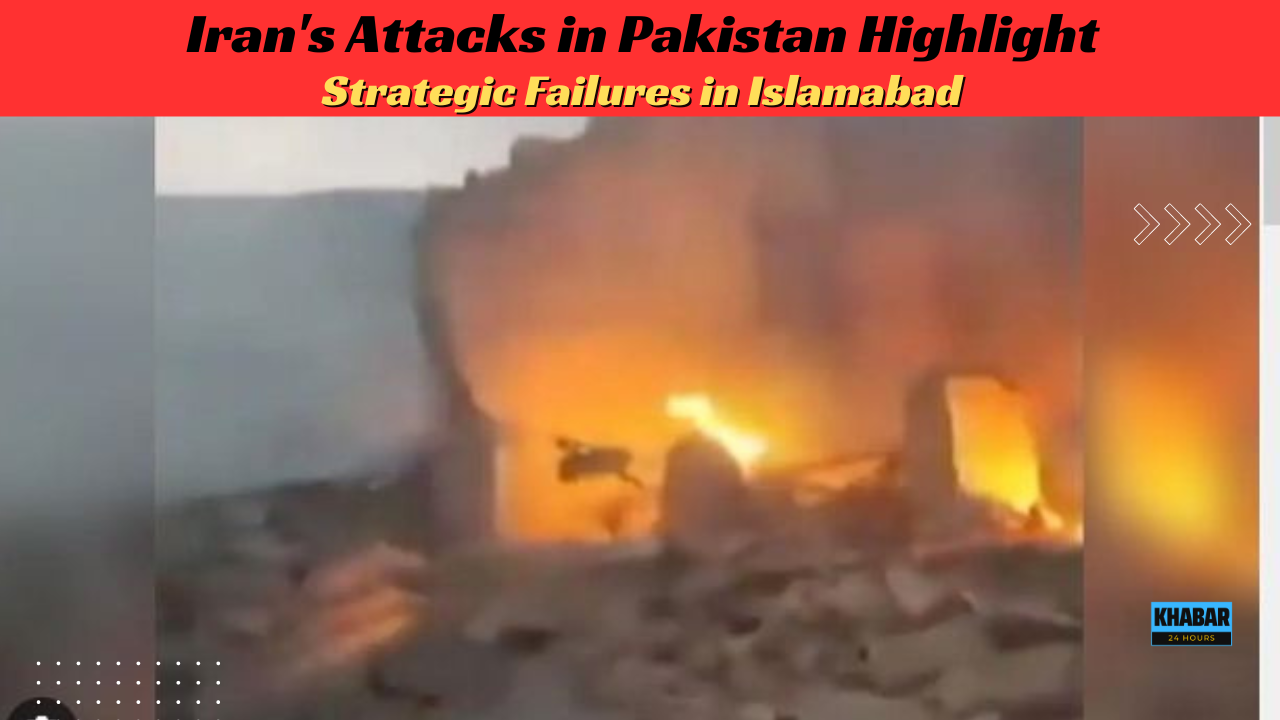In mid-December last year, Jaish ul-Adl, a Sunni militant group involved in the Baluch insurgency spanning Pakistan’s Balochistan region and Iran’s Sistan and Baluchestan province, launched an attack on a police post in the Iranian city of Rusk. The gun battle that ensued resulted in the death of 12 Iranian police personnel. Rusk was just one of many locations where Jaish ul-Adl has been implicated in attacks over the years.
The recent missile strikes by Iran into Pakistan have brought to light the enduring tensions between the two nations regarding Baluch militancy and the associated ethnic conflicts. These strikes occur against a backdrop of not only regional but also global security concerns. Pakistan responded by condemning Iran’s actions and summoning their charge d’affaires. According to Iranian reports, Jaish ul-Adl has acknowledged the missile strikes on their positions in the remote mountains of Balochistan.
Notably, Iran’s Foreign Minister Hossein Amir-Abdollahian and Pakistan’s caretaker Prime Minister Anwaar Ul Haq Kakar had a meeting at the Davos economic summit in Switzerland just hours before the recent events. Simultaneously, Iran’s Special Representative for Afghanistan, Hassan Kazemo Qami, visited Pakistan for consultations. During his visit, Qami was reported by the Afghan press as stating that “Islamabad and Tehran have reached an agreement on interaction with Kabul.” This has led to speculation about whether Tehran informed Islamabad about the strike against Jaish ul-Adl before it occurred. With Pakistan already grappling with significant security challenges from groups like Tehrik-e-Taliban Pakistan (TTP) and Islamic State Khorasan (ISKP), coupled with its strained relationship with the Afghan Taliban, whom it harbored for decades, direct aggression by Iran adds another dimension to the security concerns that the Pakistani military is currently facing.
The intricate relationship involving Iran, Pakistan, and the Taliban concerning Baloch militancy is highly complex. The Afghan Taliban is often accused of both covertly supporting and publicly condemning groups like Jaish ul-Adl. The intricacies extend beyond these economically challenged regions. Salahuddin Farooqui, the founding leader of Jaish, has previously opposed Iranian backing for Syria’s President Bashar Al-Assad. Tensions between Pakistan and Iran over Jaish’s activities along their borders date back to 2011-12. Since then, Iran has criticized Pakistan for its perceived leniency towards these entities and has accused other adversaries such as Israel, the U.S., and even Saudi Arabia and the UAE of providing support.
While some analysts are interpreting Iran’s actions in Pakistan within the context of its ongoing strategic maneuvers in the Middle East, this perspective might be somewhat stretched. The concerns related to groups like Jaish and the tensions between Iran and Pakistan over Baluch militancy existed before the current conflicts in Gaza or the escalating security issues in the Red Sea. Iran has consistently stated its intention to target Jaish’s safe havens within Pakistan over the years, and clashes between border troops of the two countries have been a recurring event. This incident primarily revolves around bilateral and border management matters between the two nations, further complicated by the Afghan Taliban assuming power in Kabul in 2021. The ideological nature of Jaish poses challenges for entities like the Taliban to distance themselves from the group or its cause, in favor of political and geopolitical considerations. This is evident in the ongoing internal debates within the Taliban, particularly concerning girls’ education in the country.
For Pakistan, this new development marks another setback in the swift breakdown of its institutionally flawed strategies that endorse state-sponsored extremism and terrorism. As the country’s economy continues to crumble and it struggles to prevent its strategic assets from rebelling against its authority, external actors view this period in history as a prime opportunity to independently target these networks. With only caretaker authorities overseeing the tumultuous situation, there appears to be limited political will, and the military is preoccupied with addressing parallel challenges from civilian figures like Imran Khan, who has become too assertive for the military’s liking.
A deeply troubling aspect surrounding events like the Iranian missile strike is that Pakistan is, indeed, a nuclear-armed nation. The concept of nuclear deterrence was seemingly not considered as Tehran planned its strike on Jaish networks in Baluchistan. This raises concerns about the type of strategic thinking, if any, prevailing in the corridors of power regarding Pakistan’s status as one of the very few nuclear powers globally. Notably, Pakistan’s influential army chief reportedly sought American assistance to address the TTP threat as part of a counter-terrorism narrative, but this request found little traction in Washington. Presently, the only potential beneficial application of Pakistan’s nuclear capabilities could be to instill fear of these weapons falling into the hands of militants. As the renowned scholar Stephen P. Cohen once remarked, Pakistan often negotiates with the world by pointing a gun to its own head.
This incident has highlighted to the international community that the Afghanistan-Pakistan theater remains relevant and cannot be overlooked. Despite disagreements with the Taliban, Iran is collaborating with the regime with a broader objective in mind—to prevent the West, especially the US military, from coming too close to its borders again.
Kabir Taneja holds a position as a Fellow in the Strategic Studies Programme at the Observer Research Foundation. He is the author of ‘The ISIS Peril: The World’s Most Feared Terror Group and its Shadow on South Asia’ (Penguin Viking, 2019).

